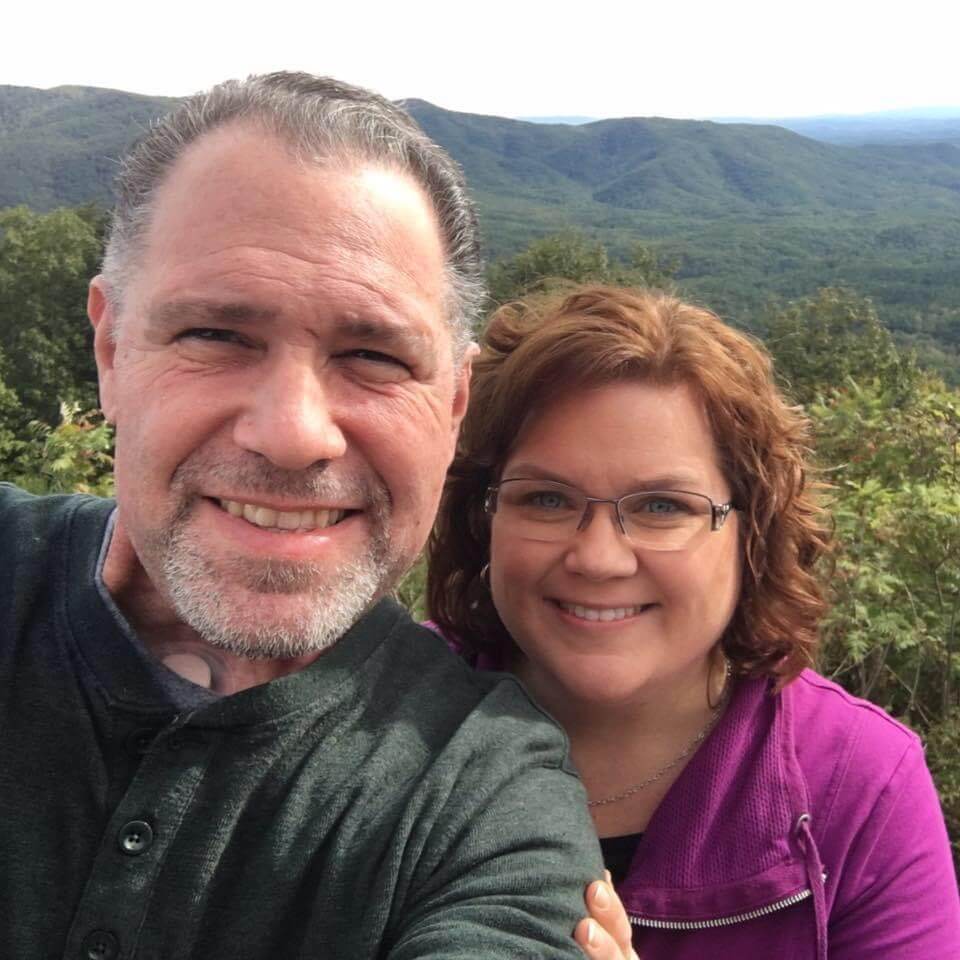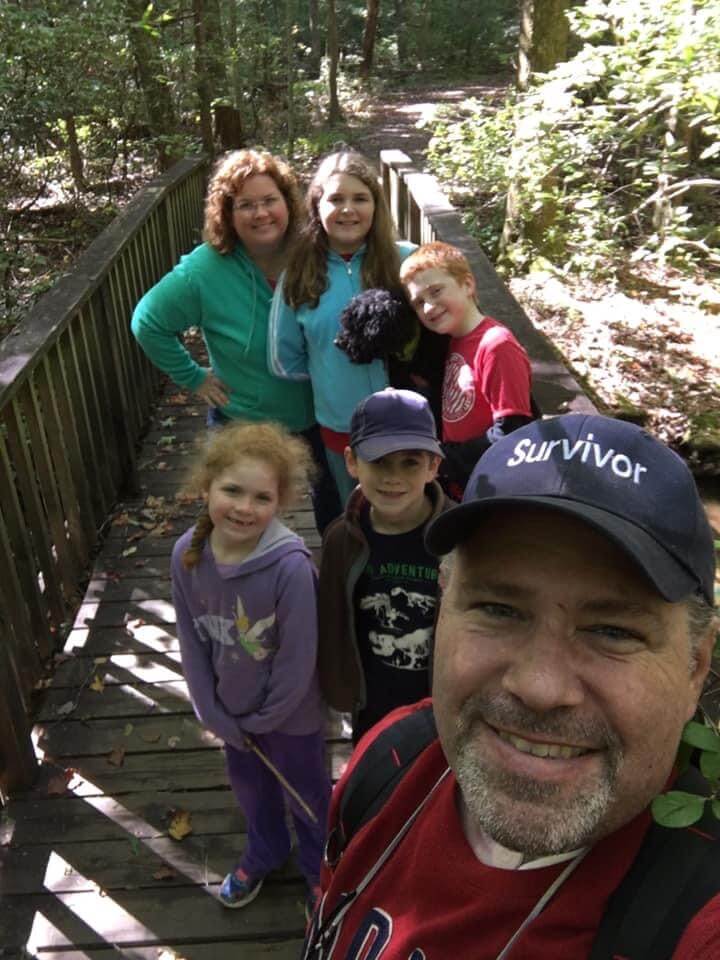Sitting on his living room couch one day in 2016, Scott Turley had to fight back tears as he read a book to his young children. A rare cancer diagnosis that led to a 16 hour surgery to remove a tumor in his trachea had resulted in the loss of his larynx and vocal cords the previous year — but through the use of a surgically implanted voice prosthesis (artificial voice box), Turley was finally able to read to his family again.
The father of four has been able to enjoy countless moments like this — and for the first time in a long time, face the future with a sense of confidence and optimism, he says — as a result of clinical trials offered through Dana-Farber’s new Center for Salivary and Rare Head and Neck Cancers.
“We’ve never left Dana-Farber without hope,” explains Tricia Turley, Scott’s wife. “We might not always get good news, but we know they’re always there for us.”

Seemingly out of options
Leading up to his cancer diagnosis, Turley found himself constantly gasping for air following everything he did, even everyday chores. The 43-year-old blamed it on his age catching up with him. Once he started struggling to breathe while reading, however, Turley knew something wasn’t right.
Originally, he was diagnosed with exercise-induced asthma and given an inhaler. When his condition failed to improve, Turley sought the advice of different specialists. Eventually, he underwent a laryngoscopy, a procedure that allows a physician to view the larynx, or the area of the throat containing the voice box.
Turley was found to have a mass in his larynx that was blocking more than 90% of his airway; he needed emergency tracheostomy surgery. Shortly after surgery, he was diagnosed with stage IV adenoid cystic carcinoma (ACC), a rare form of salivary gland carcinoma (cancer that originates in the tissues of the glands that make saliva).
“I was afraid when I heard the news, but I’ve tried not to stress too much and instead focus my energy on finding a solution,” Turley says.
Following surgery, Turley underwent radiation treatment, and had clean scans for a few years afterwards. But in 2019, during a check-up, his oncologist found dozens of small spots on his lungs, indicating the cancer had spread again. Currently, there are no FDA-approved treatments for ACC, and the Turleys were initially informed that they were out of options.
Renewed hope
Undeterred, Tricia started speaking with other ACC patients to try and find another possibility. The Turleys were given the name of someone who might be able to help: Glenn Hanna, MD, director of Dana-Farber’s new Center for Salivary and Rare Head and Neck Cancers. As a result of their first email exchange with Hanna, the Turleys’ entire outlook changed.
Whereas others had told them there was nothing that could be done, Hanna laid out options and clinical trials that were available. Soon, Turley was making the trip from Georgia to Boston every month to connect with Hanna and receive his treatment. Turley is now participating in his third clinical trial, and some of his tumors are shrinking.
“Dr. Hanna is the perfect blend of compassion and tenacity,” Tricia says. “He truly cares about his patients, and we know he will fight for Scott’s health.”
Rare head and neck cancers, like ACC, account for 3-10% of all head and neck cancers, with roughly 2,500 Americans receiving a diagnosis like Turley’s each year. Currently, many rare head and neck cancers have very limited FDA-approved treatment options, if any at all, for managing advanced or metastatic disease — meaning patients often require personalized, “out-of-the-box” treatment plans.

To better serve this patient population, Hanna launched the new Center for Salivary and Rare Head and Neck Cancers at Dana-Farber in October. While Dana-Farber has always cared for these patients, the center allows the Institute to standardize its process for collecting and sequencing tumor samples, reviewing specific patient cases, and offer patients a broad portfolio of clinical trials.
“We want to give these patients a home here at Dana-Farber and centralize not just their care, but also the clinical trials and research behind these diseases,” explains Hanna. “The goal is to always have something in the pipeline so that patients never feel they are out of options.”
‘Our rock‘
Today, Scott and Tricia Turley are busy trying to keep up with their four kids. Their two boys love playing baseball and football, while their girls are constantly off dancing. When they’re not at practices or recitals, the family organizes camping trips and other outdoor activities. Regardless of where their travels lead them, Turley is there with his camera to capture each moment.
“Throughout it all, he’s been incredibly strong, and has really held the family together,” says Tricia. “Scott has always been our rock.”
